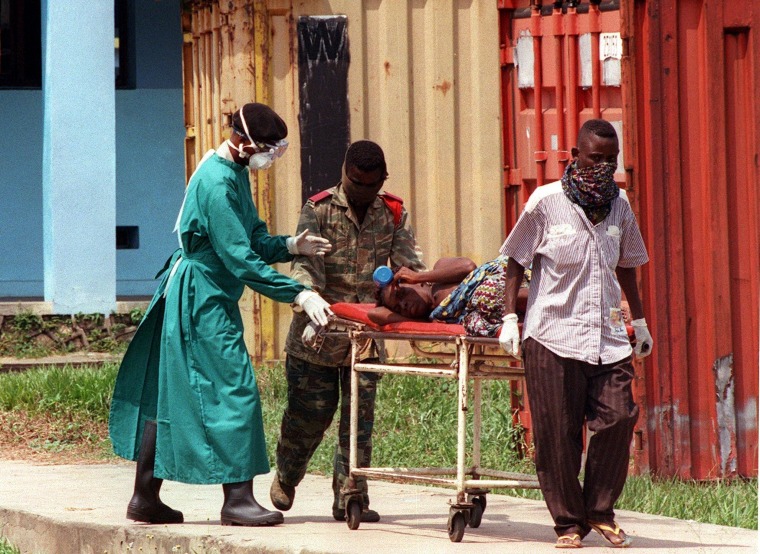Guinea has received confirmation that a mysterious disease that has killed up to 59 people in the West African country, and may have spread to neighboring Sierra Leone, is the hemorrhagic fever Ebola, the government said on Saturday.
Cases of the disease - among the most virulent pathogens known to infect humans, with a fatality rate of up to 90 percent - have been registered in three southeastern towns and in the capital Conakry since Feb. 9. It has never before been recorded in Guinea.
"It is indeed Ebola fever. A laboratory in Lyon (France) confirmed the information," Damantang Albert Camara told Reuters.
Six of the 12 samples sent for analysis tested positive for Ebola, Dr. Sakoba Keita, who heads the epidemics prevention division at Guinea's health ministry, told Reuters. He added that health officials had registered 80 suspected cases of the disease, including 59 deaths.
"But you have to understand that not all the cases are necessarily due to Ebola fever. Some will have other origins, including a form of severe dysentery," Keita said.
World Health Organization (WHO) officials said that cases showing similar symptoms, including fever, diarrhea, vomiting and bleeding, had also been reported in an area of Sierra Leone near the border with Guinea.
The international medical charity Medecins Sans Frontieres (MSF) announced on Saturday it was reinforcing its medical and logistics teams in Guinea in response to the epidemic. It is also flying in 33 metric tons of medicines and equipment and is setting up isolation units in the three affected towns in Guinea.
Ebola is introduced into the human population through close contact with infected animals including chimpanzees, gorillas, fruit bats, monkeys, forest antelope and porcupines, according to the WHO. The disease, which is transmitted between humans through contact with organs, blood, secretions, or other bodily fluids, is most commonly found in the Democratic Republic of Congo, Uganda, South Sudan and Gabon.
